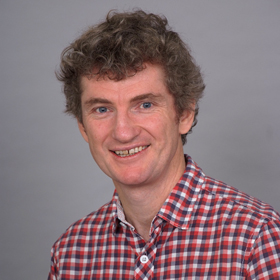Professor Anthony Shakeshaft is Deputy Director of the National Drug and Alcohol Research Centre (NDARC), UNSW Sydney. He leads the Aboriginal Health and Wellbeing priority area of the UNSW Medicine Neuroscience, Mental Health and Addiction Theme and SPHERE Clinical Academic Group (CAG).

Name:
Anthony Shakeshaft
Position:
Professor and Deputy Director, National Drug and Alcohol Research Centre (NDARC), UNSW Sydney
What are you hoping to achieve in the Aboriginal Health and Wellbeing priority area?
Three key things:
- First, I’d like to see all clinical services in south east and south west Sydney being actively aware of the need to ensure Aboriginal patients feel welcome, respected and valued, and modifying their service delivery practices and environments accordingly. I’m not suggesting Aboriginal patients don’t feel welcome, respected and valued, but the cultural competence or sensitivity of services should be regularly monitored and incrementally improved.
- Second, we need to find more effective ways to co-design the delivery of clinical services for Aboriginal patients so that services are evidence-based and the operationalisation of their delivery is led by Aboriginal clinicians, healthcare practitioners and researchers.
- Third, that Aboriginal services become beacons of developing, implementing and evaluating innovative clinical practice.
How has the Neuroscience, Mental Health and Addiction Theme and CAG facilitated new opportunities in research and/or collaboration in the Aboriginal Health and Wellbeing priority area?
The Theme and CAG have been critical in creating new links between clinicians and researchers. They have provided a catalyst for different groups of researchers and clinicians to meet to understand what different groups are doing in Aboriginal health and to discuss new ideas. With support from the Theme and CAG, we have brought interstate experts to Sydney to talk to us about how they have succeeded in improving Aboriginal health in their own clinical and research environments. The Theme and CAG are also offering the possibility of seed funding to kick-start activity – without that support newly forged relationships are in danger of stagnating.
How has the Neuroscience, Mental Health and Addiction Theme and CAG enabled you to develop your own research interests?
To date (and it’s early days) it has helped me to think about how my existing research initiatives might be expanded to involve new collaborators. It has also challenged me to be more ambitious in my ideas: can I develop research ideas in collaboration with a much greater number of clinical services across south east and south west Sydney? And if there are ideas that seem promising, we know we can apply for seed funding to test them.
What do you see as the emerging areas of research in the Aboriginal Health and Wellbeing priority area?
Echoing my response to the first question, I think we need to crack the nut of genuine Aboriginal leadership of clinical services. Of course, clinical practice should be evidence-based but services need to be provided in a way that makes them most accessible and meaningful to Aboriginal patients and, therefore, most effective.


